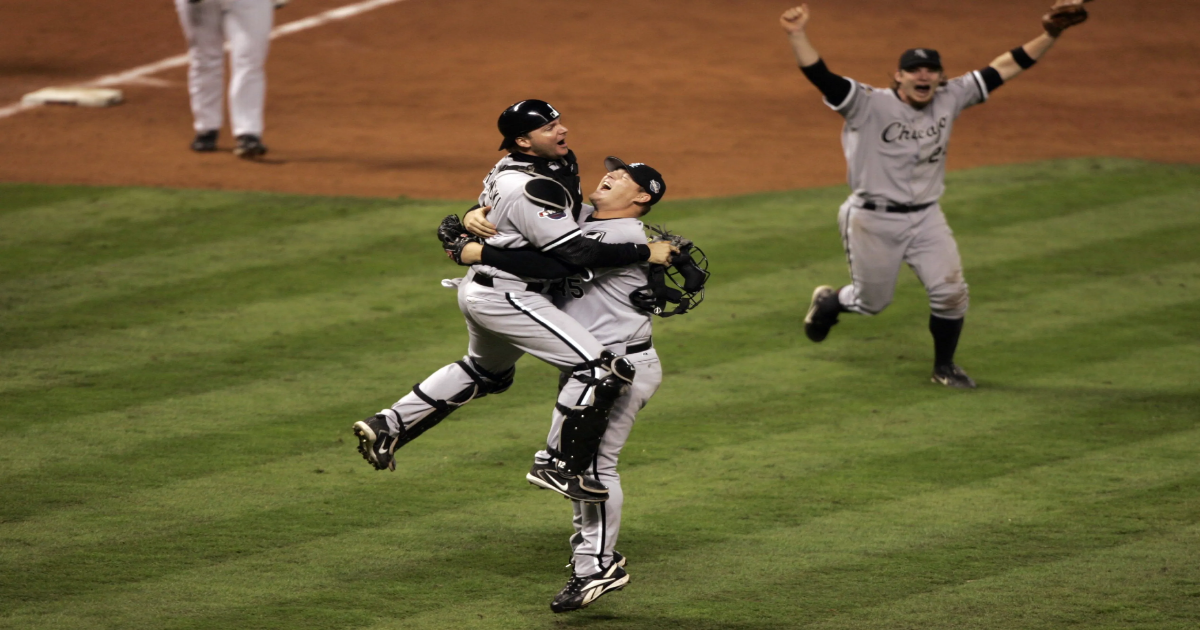Bring in the big fella, manager Ozzie Guillen pantomimed on his way to the mound in Game 1 of the 2005 World Series, because the big fella was a phenomenon. It was a miracle he’d even made the show; his first team had cut him before reaching the majors because of problems with alcohol, with his weight, and with injuries caused by his mighty fastball. The White Sox had claimed him on waivers, and finally called him up on July 5, and here it was—the biggest moment in franchise history in nearly a century, and Guillen went to the rookie. He’d call for the big fella in each and every game of that Chicago sweep, and Jenks was on the mound as the Sox won their first title since 1917.
They don’t make closers like Bobby Jenks anymore. Big, burly guys with arms to match. Huffing and puffing as he stares in for the pitch, of which he has a surprising three off-speed options made even more effective by his triple-digit fastball. Closers with fire, wearing his emotions on his sleeve. Two hundred and seventy-five pounds of closer. “A larger-than-life figure,” his catcher A.J. Pierzynski called him. “He was like Paul Bunyan. A gigantic human being.”
His career burned hot and fast and short, like his life—Jenks died Friday, from stomach cancer, at the age of 44.
“The shit I was doing in my 20s and early 30s, no normal person would have survived,” Jenks said earlier this year, after his diagnosis with Stage 4 adenocarcinoma, an aggressive and terminal cancer. He was referring to his abuse of alcohol and prescription painkillers, which accelerated in 2011 after a botched back surgery for which Jenks successfully sued the surgeon for $5 million. Just a few years removed from that World Series and two all-star selections, his baseball career was over.
DUIs followed, and an intervention, and a divorce, and a trip to rehab. The bright side to rock bottom is that by definition it gets better from there: Jenks got clean, and met his second wife in rehab, and in 2021 returned to the game as a coach in the independent and summer leagues.
Jenks moved to Portugal in the offseason to be nearer his wife’s family. After his California home burned down in the Palisades wildfire in January, and he got his cancer diagnosis in February, the move became permanent.
A couple of months later, The Athletic’s Sam Blum wrote a particularly heartbreaking story of a man who seemed to vacillate between accepting the inevitability of his death and a refusal to stop imagining his future. Jenks told his doctors not to schedule any treatment for the first full week of July, because that was the week the White Sox were having the 2005 team back to celebrate its 20th anniversary. “Whether you like it or not, I’m going,” Jenks told them. That reunion will be held next weekend.
